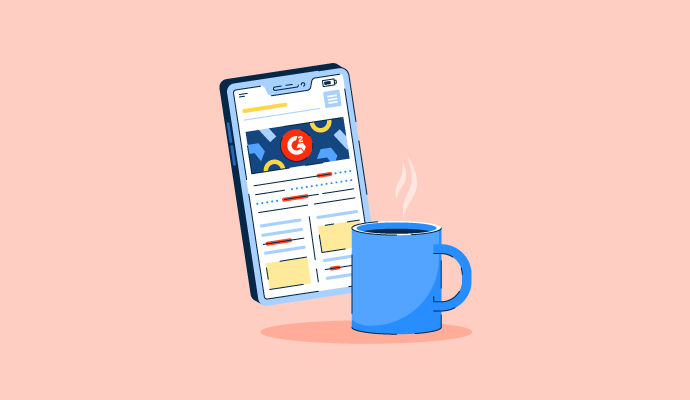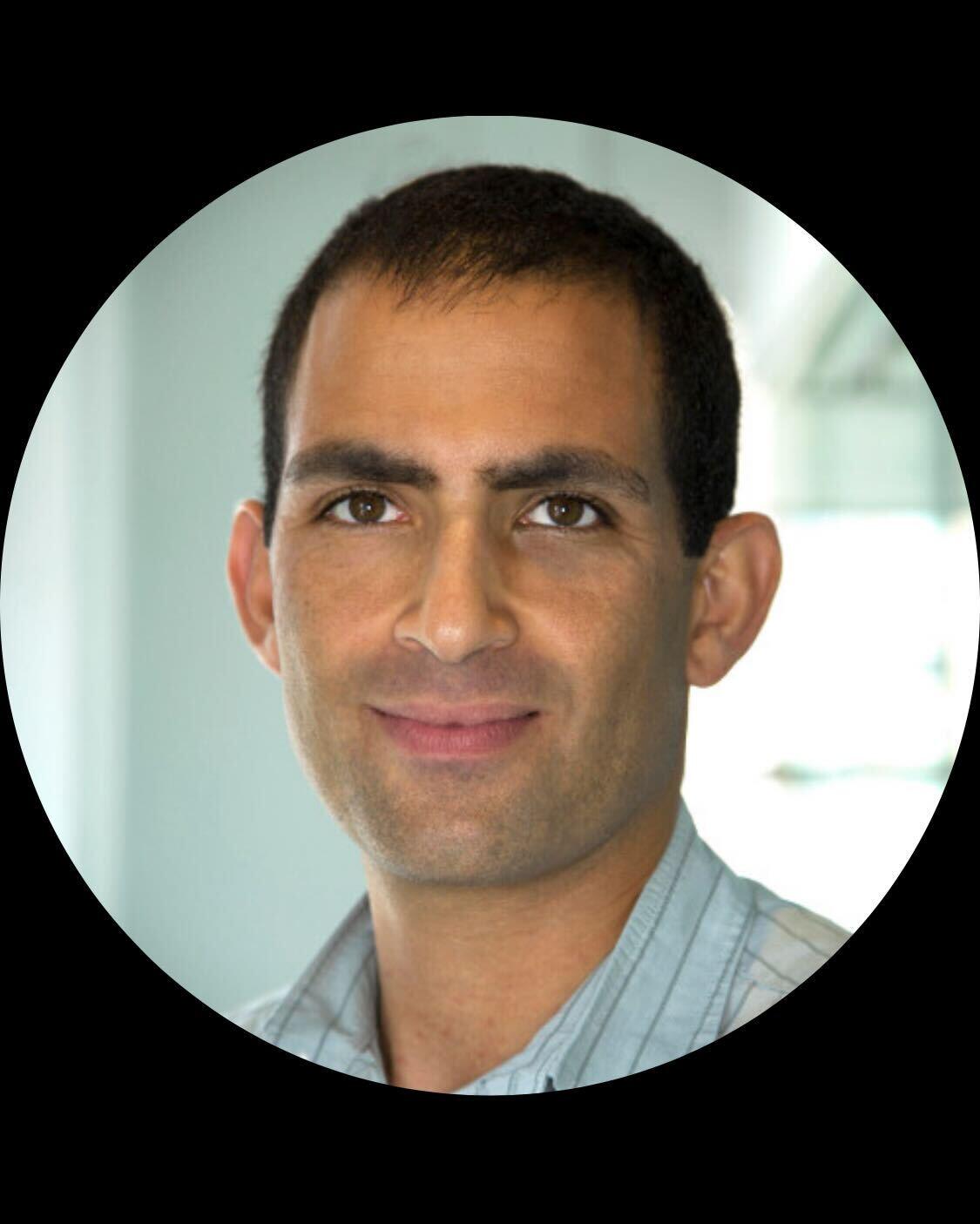March 26, 2025
 by Alexandra Vazquez / March 26, 2025
by Alexandra Vazquez / March 26, 2025

SEO is no longer what it used to be.
With constant algorithm updates, shifting search behaviors, and AI shaking up the industry, businesses can’t afford to rely on outdated SEO strategies anymore. The key to staying ahead? Understanding the trends affecting growth and knowing how to adapt before it’s too late.
As the latest in our Industry Insights series, I chatted with Kevin Indig, a growth advisor specializing in SEO and product-led growth. In our conversation, Kevin shares how businesses (from startups to enterprises) can future-proof their SEO strategies, what AI means for the future of organic search, and how to stay on Google’s good side despite constant algorithm changes.
To watch the full interview, check out the video below:
This interview is part of G2’s Industry Insights series. For more content like this, subscribe to G2 Tea, a weekly newsletter with SaaS-y news and entertainment.
What is your favorite beverage?
I'm a bit of a coffee snob. I grind my own beans every morning and I do pour overs. I got spoiled by living in San Francisco for a couple of years and falling in love with Philz Coffee.
What was your first job?
My very first job was at fourteen years old working in a hospital kitchen. My role was to clean pots and pans and empty the dishwasher, which was not a normal dishwasher — it was like a large industrial dishwasher. It was very grounding. I did that job on the weekends for about a year.
What are your best time management hacks?
There are three game-changers for me. The first one is to add 50% of the time to everything. So any task that I do, when I estimate how long it could take, I just add 50%. This way, I'll have a buffer before and after every meeting. It’s a very broad approach, but it’s been good for me.
The second thing is just thinking about why I make certain commitments. I'm ambitious and that often leads me to overcommit, which gets me into time crunches. So, asking myself why I have that urge to make these commitments? What am I trying to get to? That has been really helpful.
And then the third thing is every year, I make a list of goals and try to prioritize my time to achieve these goals. So whenever something that excites me comes out of nowhere, I always go through that list and determine if it actually makes sense for my goals.
What is your favorite software in your current tech stack?
Right now, it has to be Notion. Notion really is my second brain. I take all of my meeting notes and manage all my tasks. I have a huge library of notes for all sorts of things, whether it's some notes from a podcast or events. Whatever it is, it really lives on Notion.
What problems or issues at work make you want to throw your laptop out the window? If I’m being completely honest, there's a very particular kind of patience that I really don't have. For example, when I get stuck with a complex Google Sheets formula, I can, like, literally feel my body heating up. Then there are other types of problems that require a certain type of patience and they don't bother me at all.
You’ve worked with some big names like Atlassian, Reddit, Shopify, and G2. What brought you to SEO, and what inspired you to move from in-house roles to becoming a professional SEO advisor?
It's been an interesting journey. It started with computer games as a kid. I basically grew up when broadband Internet became accessible, which enabled online gaming. I was huge into games in general, and at some point, when I was playing with friends in a group, we needed a website. For some reason, I became the guy to figure out how to build a website. I taught myself HTML, CSS, and a little bit of Photoshop. I built a really bad website, but it was just enough for us to apply to tournaments. I got fascinated with that.
And so I built more websites and sold some for pocket change money. I just got into this world, and teaching this to myself exposed me to forums back in the day.
Eventually, I found a thread about SEO, and it was very hacky back in the day. It wasn't this established customer acquisition channel that is today. I went deep down the rabbit hole and ended up learning a bit about SEO.
Then, I went to college in Germany, and after college, I went to work for a bank, thinking I wanted to get into banking and wealth management. I quickly realized it was not the right way to go.
Somehow, I landed a job as a trainee in an SEO agency in Germany, and that agency was a career booster. They were very enterprise-focused and had very seasoned consultants. They taught me a lot, some things that I still use today.
So it all started with computer games. I was driven by deep curiosity and a willingness to learn. My luck was that I had great mentors and SEO turned into a big industry that enabled me to have a career.
With your advisory experience across startups and bigger companies, what do you see as the biggest trends in SEO today, and how have these trends changed how businesses approach organic growth?
It's a great question, and it comes at a good time because there are shifts right now across many areas of SEO. Of course, there's AI. That's a huge one, and it is real; it's not hype. It's a real, actual change affecting lots of businesses. The common theme with it is uncertainty.
Everyone is asking how AI is going to affect them. It is certainly redefining the playing field with new rules. For example, AI has really changed search because it gives people the answer right away and makes it redundant to click through websites.
We're in a transition phase. We've been in that since May when Google launched AI Overviews. And it's going to take a while until the dust settles.
And it's not just AI Overviews. It's also AI tool usage in general: ChatGPT, Perplexity, Gemini, all the AI chatbots, and LLMs. These tools changed search such that people can go there and have a much cleaner interface. There are no ads or other distractions, and it can very quickly get to an answer, sometimes on the first try.
So, it's not just Google that is changing because of AI; it's also consumer behavior. Studies show that people use ChatGPT as a replacement for search about 17% of the time, and it’s growing.
Then, there are other changes on the SEO side that are being masked by these AI changes. One of them is Google Shopping. E-commerce is undergoing a huge change because Google is displaying more products in search results instead of linking to websites. So, Google is becoming the new category page for e-commerce. That is a huge shift for SEO because now they need to change their focus from optimizing category pages on their domains to optimizing product pages.
A third shift is probably that Google shows more uncommercial content in the search results, mostly caused by Reddit and other forums like Quora. This trend of forums in the search results is a huge one. Reddit has now probably become one of the top three websites in the US in terms of size. It's a symbol for Google wanting to show more content from humans in this AI transition phase and humans wanting more conversations and answers from other actual humans.
Reddit is obviously uncommercialized. And most Google search results that you go to are either publishers selling ads or affiliates. They all have an incentive to sell something, and it seems that Google wants more of a counterbalance by showing Reddit and other forum results more prominently.
So, I would say these are the three massive shifts that are causing a lot of noise and making it hard for companies to find the right playbook and footing.
If you're on SEO TikTok, or if you're in the industry, and you log on to LinkedIn, once in a while, you'll see some SEO experts freaking out about whatever the new algorithm drop is. With search engines like Google constantly updating their algorithms, how should companies prepare for and respond to these changes to maintain their SEO rankings?
Google updates are the number one risk for organic traffic. Even very seasoned companies get affected by core algorithm updates. There is no perfect insurance against them, but there are a couple of approaches that you can do to minimize your risk of being hit negatively by a Google update.

Every Thursday, we spill hot takes, insider knowledge, and news recaps straight to your inbox. Subscribe here
One is to have really good technical hygiene. Certain things increase your risk of being hit by a Google update, like having lots of 404 pages on your domain, other types of errors, and just wasting Google's crawl budget. Even Google's resources are limited, and if they encounter a lot of “technical waste” on your site, they might decide to come by less often.
The other stuff is really about content and engagement. That's the biggest factor here. When we talk about content, we're mostly talking about text and videos on pages. And it's not even that the quality is low. The biggest thing is that a lot of companies publish content and then forget about it. And after a while, you have this whole body of content that is outdated and needs maintenance.
Another thing is that as you publish more content, gains are harder to make. New content slowly ramps up with organic traffic, while older content decays, and you have that spinning wheels effect where you plateau. Cleaning up that old content and refreshing it really helps.
The third is engagement. Lots of domains that I see being impacted by Google updates have a significant number of pages that have relatively low engagement, with users not taking any action when they land on the page. Maybe the design is really outdated, or the user experience is poor.
Those are the three buckets you want to look at when you get affected by an algorithm update on a regular basis.
You’ve mentored many startups in SEO. What unique challenges do startups face when it comes to SEO, and how can they compete with larger companies that have more resources?
When it comes to startups, there are two types of challenges.
The first is simply a lack of resources. Startups are, by definition, resource-constrained. Most companies will scale SEO with content they create themselves. This often means they need to outsource content creation to freelancers or agencies, which they usually don't have the money for, or hire writers in-house. So the challenge is, how do they create content to drive SEO traffic, and how can they make it really good?
The second challenge is reserved for a small number of companies that use user-generated content (UGC) to scale their organic traffic. They have to figure out how to create content of very high quality and consistency. AI certainly is an enabler and accelerator of content creation, and I've worked with a couple of companies that are able to create a large volume of high-quality content with AI.
As you’ve discussed, AI and machine learning (ML) are reshaping the SEO landscape, and there are a lot of advantages to that. But what are some potential pitfalls companies should be aware of?
One is being lazy and not making the AI content really good. They just go to ChatGPT, enter a one-sentence prompt, and then just take that and put it on their website. I would really caution against that.
You can make it much better if you spend a lot of time with prompt engineering. The prompts I develop with companies are typically 5 to 800 words long. They're really in-depth, and, most importantly, they're often paired with some sort of data source from the company. You need to be very specific with AI. You need to guide it in the right direction. You need to show it what good looks like, even though these models are getting a lot better.
The second pitfall is to publish too much content too quickly. If, for example, you publish a thousand articles generated with AI tomorrow, Google will be very skeptical about this. It will take some time for Google to find all these articles, crawl, render, understand, and rank them.
The challenge is that when domains or companies are too aggressive, their engine literally cannot handle it, meaning their domain is not strong enough to carry a massive expansion of pages very quickly. What you want to do instead is to progressively add new pages to your domain. The perfect limiter is to just set a very high bar of quality for the content that goes out.
I'd love to close out with a bit of a forward-thinking question. And I know this question might be a little tough because SEO is constantly changing. What do you see as the future of SEO in the next 5 to 10 years? How should companies future-proof their SEO strategies to stay ahead of the competition?
This shift is still going on, and it will probably take a couple more years to settle. The way that it looks right now, search seems to be really becoming an engagement model. Up until a year ago, search was all about sending clicks to other websites where people could find the answer. That is now changing for people wanting to get the answer right away.
People will always click through to websites, but that volume is going to drop tremendously. As a result, the traffic that still arrives on websites is going to be much more qualified and of much higher value because people have probably done a couple of rounds on ChatGPT or Google AI Overviews. They just got most of their questions answered. They have a really good idea of what they want, and now they're in the last few steps of making a purchase. That's the type of traffic that will still arrive at websites. But the challenge is that, again, it's much, much lower volume. So, we have to reset our expectations of traffic versus revenue.
We're not getting as much clarity into what happens on our website. Like today, we have a lot of content on our sites and traffic to that. Content also helps us understand what people are interested in, what questions they have, and what they're curious about. But a lot of that is going to go away.
Now, there is a chance that LLMs will give us new analytics and insights tools or that we will gather these insights by advertising on LLMs. For example, Perplexity is now launching ads on a cost-per-mille (CPM) basis, and I assume that they will give us some insights about the return of these ads. We can use that to get a high-level idea of what people search on Perplexity and their user behavior.
So, we're going to lose some insights, but as a trade-off, we're going to get more qualified traffic. The big challenge is that if we have less activity on our website that we can control, how can we be visible in LLMs? How can we insert ourselves into the set of choices that people make when they want to make a purchase as early on as possible? We'll have to figure that out over the next couple of years.
Watch the full chat on YouTube and subscribe to G2 Tea, our SaaS-y newsletter with tech insights and tidbits from industry professionals like Kevin!
Follow Kevin Indig on Linkedin to learn more about his SEO expertise and his work as an independent advisor to the fastest-growing companies in the world.
Edited by Supanna Das
Alexandra Vazquez is a former Senior Content Marketing Specialist at G2. She received her Business Administration degree from Florida International University and is a published playwright. Alexandra's expertise lies in copywriting for the G2 Tea newsletter, interviewing experts in the Industry Insights blog and video series, and leading our internal thought leadership blog series, G2 Voices. In her spare time, she enjoys collecting board games, playing karaoke, and watching trashy reality TV.
Most sales outreach fails. Not because reps aren’t trying hard enough, but because they’re...
 by Alexandra Vazquez
by Alexandra Vazquez
Customer relationships have come a long way since the early days of CRM.
 by Alexandra Vazquez
by Alexandra Vazquez
The NeverEnding Story is my all-time favorite movie. If you grew up in the '80s or '90s,...
 by Sa’ar Calev
by Sa’ar Calev
Most sales outreach fails. Not because reps aren’t trying hard enough, but because they’re...
 by Alexandra Vazquez
by Alexandra Vazquez
Customer relationships have come a long way since the early days of CRM.
 by Alexandra Vazquez
by Alexandra Vazquez


